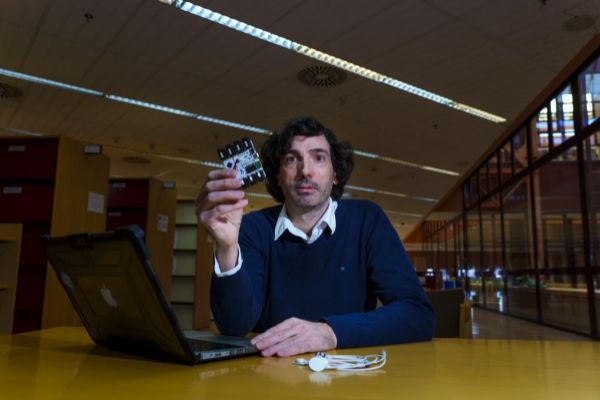- Future: Digital apocalypse: how to prevent human beings from becoming extinct because of the Internet
A terrorist group hacks the pacemaker of the vice president of the United States. Reality or fiction? What was the plot of a chapter of the Homeland series in 2012 was also a cause for alert for the true former vice president of the American country, Dick Cheney , who, on the recommendation of his doctor, requested that the wireless connection of his pacemaker be deactivated , for fear that he could be hacked in an assassination attempt.
"It is true that this Wi-Fi technology allows the doctor to check the patient's condition 24 hours a day, 365 days a year, without having to go to the hospital. You can even change the configuration of the device remotely when there is an anomaly" , explains Telecommunications Engineer Pedro Peris, highlighting the benefits of this breakthrough that was introduced in 2000 and that today incorporates "the vast majority of pacemakers." However, he adds, this wireless communication is "an open door to data intrusion and a threat to physical integrity [...] This is an insecure channel that only authorized entities should be able to access".
Peris, who is a tenured professor in the IT department of the Carlos III University of Madrid, has been working in the radio frequency field for years and just a couple of months ago he received one of the 60 Leonardo scholarships that the BBVA Foundation grants to scientific projects , technological and cultural.
Where appropriate, the help has one objective: to design cybersecurity solutions to alleviate these pacemaker vulnerabilities, one of the most widely used implantable medical devices worldwide.
It was a researcher from the University of Massachusetts (United States), Kevin Fu, who initially analyzed the extent to which professional hackers could access pacemaker information and manipulate it in order to inflict harm on the patient.
As Peris points out, his work (published in 2008) concludes, on the one hand, that "it is possible to access the transmission of sensitive and private information such as name, surname, date of birth, electrocardiogram and diseases that the subject may have. " But also, "because there is no access control system or if there is, it is very simple, you can change the parameters of the device and, for example, cause a heart attack."
It is clear, following more recent studies, that the safety of these implanted devices is "very low," said the Spanish engineer. "In the same way that hackers get access to computers and load the entire system, they can also do it with pacemakers, which are inside the body and the consequences are more drastic."
But "it is not about creating alarm, but about giving solutions . " It should be remembered that "we do not know any case of this type and if we see any in the future, it would not be in the form of massive attacks but directed." However, we must comply with the data protection laws and safeguard the integrity of the people who carry these devices. And in this way the Spanish researcher is working.
" We have several proposals that we are testing in the laboratory . We hope that next year we can verify them and that the scientific community evaluates and implements them." It's about creating a new generation of hacker- proof pacemakers.
Since the wireless connection is part of pacemakers, in the United States there have been several security alerts issued by the American Medicines Agency (FDA) in order to reprogram thousands of pacemakers by detecting the risk of Be manipulated by intruders. A real threat has never been declared, but vulnerabilities that have had to be corrected have been identified.
"We must design cybersecurity solutions to create safe pacemakers."
The cost of this type of electrical pulse generating apparatus ranges "between 6,000 and 9,000 euros." The fact of not incorporating a system to protect access to sensitive information and avoid hacking "is like investing a fortune in a good gateway to the house, but leaving the key under the carpet," says Peris, who has committed to Find the right formula to keep pacemakers safe from thieves and criminals.
According to the criteria of The Trust Project
Know more- Science and Health
ScienceThe 9-year-old Belgian boy who was about to graduate leaves university for a dispute between his parents and the center
ScienceThe Greta Thunberg transatlantic crossing, less polluting than the plane?
Climate crisis Pedro Sánchez: "Al Gore has favorably valued the Energy and Climate Plan"

